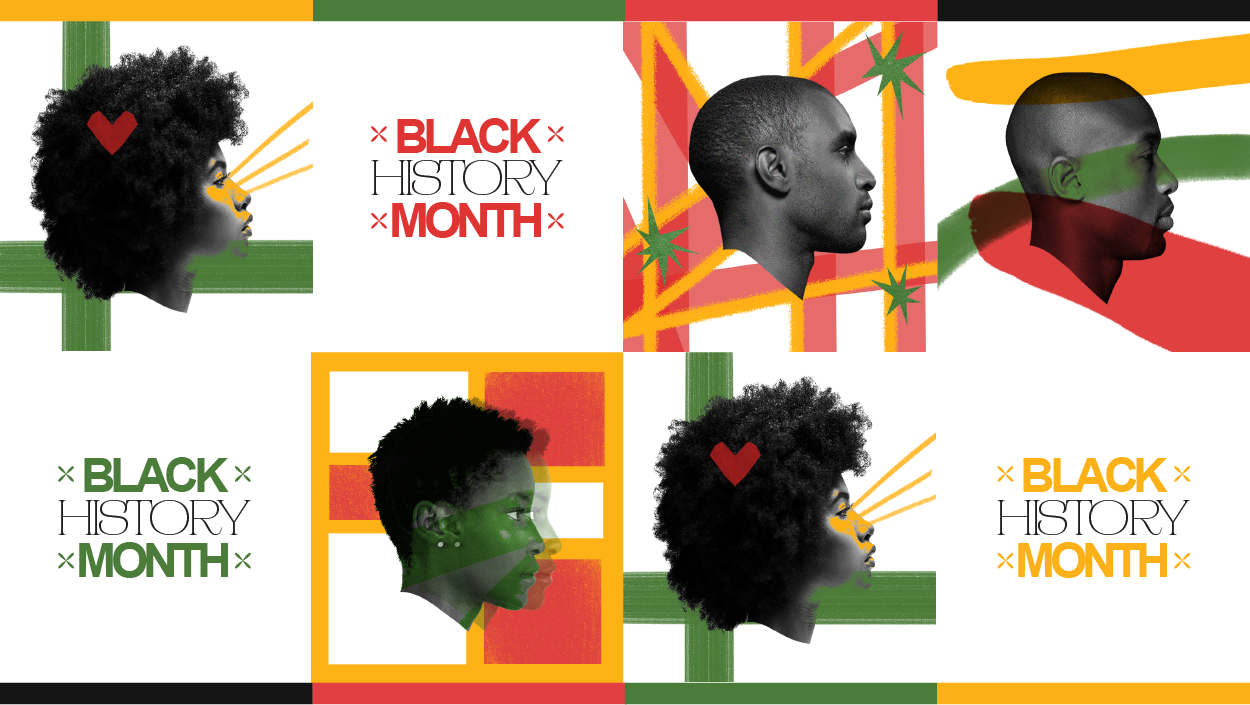With artificial intelligence able to support individualised learning, educators should act as curators of knowledge – cultivating creativity, critical thinking and other competencies to help foster deeper and more meaningful connections with each student.

Comment spotlight
Are you an RSA Fellow? Submit your original article to Circle and it could be featured as the next Comment spotlight.
This Comment is part of our Spotlight series highlighting the most engaging articles submitted to the Comment space on Circle from Fellows. If you have an article you would like to share with the Fellowship, click the link to upload it now.
The first time I heard school leaders talking about AI was a little over a year ago. That conversation was about this thing called ChatGPT and what they were going to do about students using it to write assignments. “Back to pens and paper” was the battle cry I heard then and have heard since. Just as it’s true that horse breeders were wary of the first cars and that the emergence of the Luddites arose in response to early automation of the weaving industry, many educators perceive AI as an imminent threat to traditional pedagogy.
The increasing prevalence and accessibility of AI are nurturing divergent viewpoints. Some teachers and school leaders reject its role altogether, fearing the demise of human agency and the dilution of a reliable and established system. Others have cautiously adopted AI tools but are yet to fully understand how this technology might enhance connection with students, support diverse needs, and, ultimately, create a more individualised and egalitarian system.
But, of course, the real question for the sector right now, is: are we preparing young people with the competencies necessary to navigate an AI-integrated world, one filled with complex global challenges that most curricula don’t currently recognise?
Choices for the education system are fast evolving into a roundabout of possible destinations. Content and knowledge are becoming increasingly accessible and decentralised, and young people are more empowered than ever to choose that content based on their personal interests. AI will continue to provide powerful educational tools, automating administrative tasks, giving real-time assessments, analysing learning patterns, identifying student strengths and helping make education more individualised for each learner.
With technology capable of delivering the complexities of personalised learning, educators could shift their focus from delivering content to developing competencies – human skills that cannot easily be replicated by machines. In a system long marinated in institutionalisation and where reverence for established methods can sometimes smack of religiosity, the question is now: can schools create the conditions for an emergency change in focus? And what emerging approaches are best suited to prepare our young people?
With technology capable of delivering the complexities of personalised learning, educators could shift their focus from delivering content to developing competencies – human skills that cannot easily be replicated by machines.
Educators as curators
So, to what degree do we let AI into the education system? If we believe it’s our responsibility to lead integration meaningfully, isn't it time to radically develop traditional teaching roles in line with the evolution of this technology?
To explore how, it’s helpful to look at the arts and cultural sector, where curators in museums, and galleries are tasked daily with creating cohesive, engaging experiences. They select from vast collections of artworks and artefacts, using critical and creative thinking to connect with audiences – skills entirely reflective of what educators need to focus on to guide personalised learning experiences for each young person.
Educators in early years and primary education already nurture and rely on this generalist mindset, guiding young learners through a broad range of subjects and experiences. As the scientist and journalist David Epstein argues in his book Range, generalists are better equipped to navigate complexity and adapt to change.
This idea echoes the thinking of philosopher Isaiah Berlin, particularly in his famous essay The Hedgehog and the Fox. Berlin points to the hedgehog, who knows one big thing, and the fox, who knows many things, to emphasise the difference between specialists and generalists. Berlin suggests that generalists – like the fox – are better suited to dealing with complexity, drawing from a broad range of knowledge and experiences.
In this same way, educators need to adopt a generalist mindset to fully embrace the potential of AI and effectively prepare our children for an unpredictable future where the challenges are more complex than ever, and our current methods are falling short. With AI supporting individualised learning based on students’ interests, educators can act as curators of knowledge, becoming more like Berlin’s foxes – cultivating creativity, critical thinking and other competencies as they curate their classrooms.
Leveraging AI to analyse student data, track individual progress, and create learning experiences that align with individual interests, teachers can foster agency while freeing up time to focus on the human skills necessary to navigate the complex challenges ahead.
This shift to a generalist mindset should not solely apply to early years and primary educators. In fact, it must be extended throughout the system. As students progress, secondary and higher education become more specialised and compartmentalised, nearly always focused on single subjects. This approach often ignores opportunities for interdisciplinary and individualised learning – opportunities that AI can brilliantly support. By helping teachers integrate content from multiple fields, AI allows educators to adopt a generalist, interconnected approach that fosters creativity, problem-solving and critical thinking across all levels of education.
Embracing AI, adopting a curatorial approach and nurturing generalist mindsets could help transform classrooms into dynamic environments where critical thinking, emotional intelligence and collaboration are prioritised. Rather than kicking the can of standardised learning down the road, we shift toward fostering systems that celebrate individual curiosity and creativity, enabling teachers to spend more time engaging with students on a human level – sparking curiosity, offering guidance and tailoring learning experiences to each individual passion.
Educators need to adopt a generalist mindset to fully embrace the potential of AI and effectively prepare our children for an unpredictable future where the challenges are more complex than ever, and our current methods are falling short.
Divergent camps in education
So, what will it take to embrace and execute this change? Right now, teachers tend to fall into three broad camps when it comes to AI: sceptics, cautious integrators, and enthusiastic advocates. These positions range from apprehension to advocacy, with some educators still resistant to the technology, while others cautiously experiment with its possibilities. These evolving viewpoints are quickly forming into what might be called ‘educational archetypes’.
The sceptics resist AI, fearing it threatens the role of the human and the integrity of learning itself. They believe that ‘real’ education requires human guidance and interaction that AI cannot replicate. While strong student-teacher relationships will always remain essential, ignoring the presence of AI risks leaving us behind in preparing students for a future where this technology will be ubiquitous.
The cautious Integrators have begun to adopt AI tools but insist on a balance where technology supports, rather than replaces, human judgement. They recognise AI’s potential but remain hesitant about its impact on educational values.
The enthusiastic advocates are already using AI to streamline tasks and foster innovation. Whether creating 3D models in design or facilitating coding in computer science, they see AI’s benefits, but remain mindful of its limits and the questions surrounding the preservation of educational integrity.
No matter the position, the collective challenge for the sector is to find ways to integrate AI so that it enhances human connection while evolving the essential role of the teacher.
The shift from standardisation to individualisation, specialist to generalist, helps keep education dynamic and relevant, empowering teachers to more effortlessly build meaningful human connections while helping students become engaged, adaptable, empathetic and innovative learners.
Embracing uncertainty
In prioritising a curatorial approach, educators can embrace AI as a valuable classroom sidekick, supporting individualised learning while leaving space for the development of essential human competencies. Great teachers have always been catalysts for curiosity, creativity and possibility within each student, and AI offers the opportunity to help them do what they do best – engage, inspire and connect.
As Sir Ken Robinson famously said, traditional pedagogy can be like a well-tended garden, often uniform and predictable. We plant similar seeds, cultivate a monoculture of knowledge, and produce standardised outcomes. But organic farming, like the generalist mindset, thrives on diversity and adaptability. In this way, educators become more like skilled organic farmers – nurturing a dynamic ecosystem rather than simply tending to a neatly pruned hedge.
Berlin’s The Hedgehog and the Fox draws a similar distinction: the hedgehog knows one big thing, while the fox knows many. In education, particularly when it comes to assessment, we often operate as hedgehogs – sticking to narrow specialisations and standardised approaches. But in this new paradigm, the fox’s versatility – enhanced by AI – offers the ideal approach for young people to succeed.
Our ‘educator-fox’ can dance between ideas and disciplines, guiding students toward broader understanding and empowering them with the competencies they need to succeed in an AI-driven future. Meanwhile, the hedgehog, steadfast in its single-minded pursuit, risks becoming obsolete in a world that increasingly values adaptability and breadth.
Is it as simple as filling classrooms with AI-powered foxes modelling generalist mindsets? Obviously not. But by transforming the neat, symmetrical lawns of standardised learning into vibrant ecosystems of individual growth, educators – supported by technology – can cultivate the rich soil where creativity, critical thinking and emotional intelligence flourish. This shift from standardisation to individualisation, specialist to generalist, helps keep education dynamic and relevant, empowering teachers to more effortlessly build meaningful human connections while helping students become engaged, adaptable, empathetic and innovative learners.
This kind of evolution pushes our classrooms to become environments where technological development and human insight blend seamlessly, equipping students to thrive in an ever-changing reality full of complex challenges.
By embracing their roles as empowered curators of learning, teachers can focus on their core mission: fostering deep, meaningful connections with each student, nurturing their individual talents, and cultivating a greater awareness of our shared humanity.
Nurturing talent
Berlin once remarked, “Life is not a simple, coherent whole.” This applies strongly to education. For too long, we have treated the system as if it were a neat, sequential process, where students are stamped as successful or not based on the grades they receive and the tests they pass. That system remains guilty of viewing students as numbers on a conveyor belt, waiting to be stamped with a letter or number on their final results.
But life – and learning – are far too complex and nuanced for such mechanistic approaches. AI offers the opportunity to help break humanity free from this outdated model. By leveraging it to personalise learning, we can move beyond rigid standardisation and instead nurture the diverse talents, interests and passions of each young person.
Regardless of the exact future, it is essential that sceptics, cautious integrators and advocates come together to shape the educational paradigm of tomorrow. This technology offers a unique opportunity to rethink and redefine how we teach and learn, shifting classrooms into spaces that emphasise creativity, collaboration and critical thinking. Rather than fearing AI, educators must view it as a tool to empower them, helping nurture passions and empathy, developing the skills necessary for students to thrive in an unpredictable future.
By embracing their roles as empowered curators of learning, teachers can focus on their core mission: fostering deep, meaningful connections with each student, nurturing their individual talents, and cultivating a greater awareness of our shared humanity. Ultimately, through this transformation, we can create not only better humans, but a better society. In adapting and embracing change, we cultivate wiser individuals and, ultimately, a better collective humanity.
Alex Soulsby is a creative education specialist with a focus on creating arts and cultural programmes in schools and educational settings. He is an advocate for the transformative role of the arts in education and has led projects and initiatives in this area both in the UK and internationally.
Read other Comment articles
-
Ten ways to improve planning in the UK
Comment
Steve Newman
Steve Newman offers provocative propositions to modernise the planning system, create affordable and sustainable homes, and offer financial benefits to the government and local communities.
-
Black History Month: Q&A with I. Stephanie Boyce
Comment
Deborah Ajia
The first Black president of the Law Society discusses how she overcame the odds to rise to the top of her profession, and is now helping to drive social change as an RSA Fellow.
-
Keep dancing!
Comment
Barbara Berkeley-Hill
Age should be no barrier when it comes to dance. Barbara Berkeley-Hill discusses how dancing can help older generations feel younger, happier and more connected.




Be the first to write a comment
Comments
Please login to post a comment or reply
Don't have an account? Click here to register.